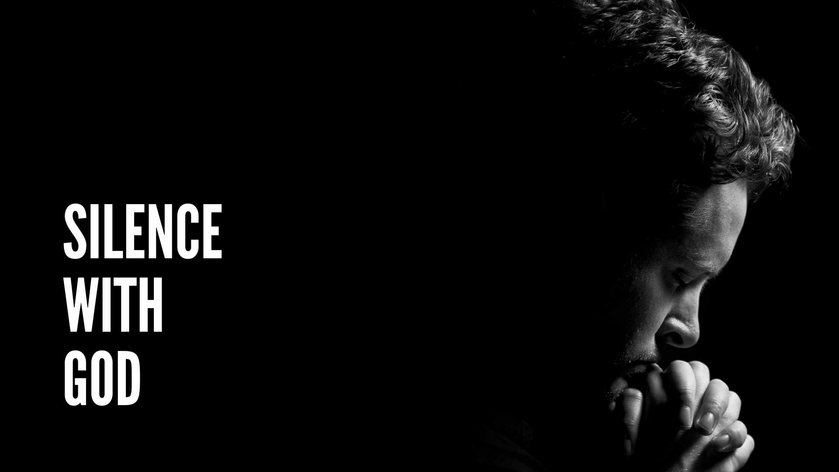Recently, I had the privilege to attend a New Ignatian Educators Retreat in St. Louis, Missouri with a few colleagues from Jesuit. Throughout the first day of the retreat, my companions and I were asked to spend time in silent reflection, inviting the Holy Spirit into a sacred space, free from the daily distractions and chaos that so often dominate our lives. I’ll admit, I struggled (and continue to struggle) with embracing the discomfort of silence. There I was, sitting in a beautiful chapel, gazing upon a crucifix, deeply frustrated that my mind seemed to be elsewhere. My mind drifted to tasks that were either left unresolved before departing for the retreat or that were looming on the horizon upon returning from the retreat. Gifted with the time to reflect, I wrestled with the deafening, seemingly unforgiving silence.
The silence was deafening because it exposed how attached I have become to the incessant activity and productivity of life. As Father Mike Schmitz acutely states, “Silence exposes and magnifies what’s in our hearts.” Through this period of restless silence, I found that I don’t particularly like what’s in my heart: endless comparing, unchecked pride, palpable isolation, and anger. In silence, I cannot suppress my anxiety with timely sarcasm and a carefully curated facade of contentment. In silence, I cannot hide behind the fleeting distraction of a screen. In silence, I cannot run from my past. Silence unveils my innate, inescapable, overwhelming brokenness. More than anything, silence reveals how desperately I need Christ.
What happens when we permit the noise of the world and the demands of our tireless tasks to supersede a genuine relationship with Christ? What happens when we allow the creation to overtake the Creator, and what can we do to rectify this spiritual imbalance in our lives? What happens when noise feels more natural than silence? I firmly believe what happens is that we take a step away from God and who He calls us to be in Him. Certainly, we can deepen our faith through readings and discussions, but God’s first language is silence, and it’s a language that we are often not inclined to hear. After all, how can we possibly hear God’s first language of silence when the volume of enticing diversions is at its apex?
I have a sneaky suspicion that if we learn to detach from the noise, to embrace periods of lasting silence, and to invite Christ into these reflective moments, God will reveal who we are in Him. For in and through Him, we are justified, forgiven, loved, protected, healed, redeemed, and chosen. During the times of silent reflection on this retreat, the words of Tim Keller percolated in my mind: “We are far more sinful than we could ever imagine, yet far more loved than we could ever hope.” May you and I seek silence with open hearts, trusting fully that no matter the chaos that permeates our lives, God is who He says He is and, thankfully, we are who He says we are. I pray that you and your loved ones find moments this month where God whispers to you in silence and that you heed His call. I pray that we make the language of silence paramount in our lives, so that we can begin to understand how to make Christ the firm foundation of our lives. I hope that we reflect on our dynamic with silence and recognize that a time for silence is a time for Christ, a time to recalibrate our hearts and elevate our perspectives to the beauty around us.
Author: Brian Goll is a B3rd Friend and English Teacher at Dallas Jesuit High School

















